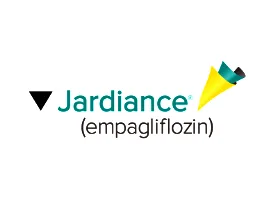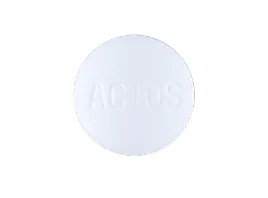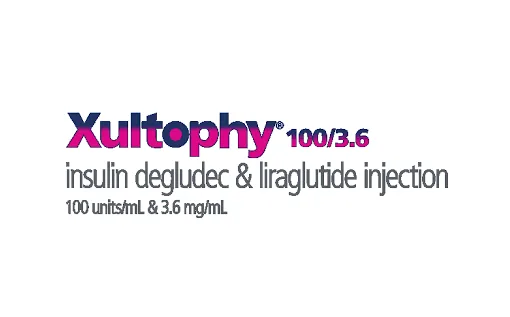- Your cart is empty
- Continue Shopping
Product
Januvia Sitagliptin Low Prices – Canadian Pharmacy
$0.00
Januvia Sitagliptin – Canadian Pharmacy Online
TO VIEW PRICE ON MOBILE CLICK ADD TO CART
- Canadian Pharmacy Online Pharmacy | Online Canadian Pharmacy
- Need More Information Call Us 1-833-356-6337
Januvia Sitagliptin Low Prices – Canadian Pharmacy
What is Januvia (Sitagliptin)?Januvia is a once-a-day prescription drug that, alongside a healthy diet and regular exercise, helps to lower blood sugar in adults that have type 2 diabetes. Its chemical, or generic name is Sitagliptin. Your doctor may refer to Januvia as Sitagliptin, Januvia’s generic name.
What is it used for?
Januvia is used for the treatment of type 2 diabetes, but not type 1 diabetes. It is prescribed either alone or in combination with other oral antidiabetic drugs in order to help improve blood sugar levels.How does this medication work?
Januvia is a member of a group of medicines called DPP-4 inhibitors (dipeptidyl peptidase-4 inhibitors). It works by blocking enzymes that breakdown important hormones involved in eating, appetite and digestion. These hormones play a large role in regulating blood sugar levels. When the breakdown of these hormones is blocked it allows the pancreas to increase the amount of insulin production, and also decrease the amount of glucagon production, which normally increases your blood sugar levels. As your blood sugar levels begin returning to normal, the effects on of insulin and glucagon slowly diminishes, which prevents an “overshoot” that can lead to low blood sugar (hypoglycemia) which is often seen with other oral antidiabetic drugs.How to take Sitagliptin
Januvia should be taken once daily, as your doctor tells you. You may take your medicine with or without food. You might also be required by your doctor to do blood tests from time to time to see how your kidneys are working. Your dose may be changed by your doctor based on the results of your blood tests. Your doctor might also ask you to take it along with other diabetes medicines. Hypoglycemia or low blood sugar can occur more often when it is used with certain other diabetes medicines. If you should happen to miss a dosage, make sure that you take it as soon as you can. If you don’t remember until it is almost time for your next dosage, skip that missed dose and go back to your regular schedule. Never take two doses at the same time to make up for any missed doses.Januvia Dosage
The recommended dose of is 100 mg once daily, and can be taken with or without food. For patients with mild kidney insufficiency no dosage adjustment for is required. For patients with moderate kidney insufficiency the dose is lowered to 50 mg once daily. For patients with severe kidney insufficiency or with end-stage renal disease (ESRD) which requires hemodialysis or peritoneal dialysis, the dose lowered to 25 mg once daily. It may be administered without regard to the timing of dialysis. When it is used in combination with insulin, or an insulin secretagogue (e.g., sulfonylurea), a smaller dose of insulin or the insulin secretagogue might be required to reduce the risk of low blood sugar (hypoglycemia).Warnings and Precautions
As with most drugs prescribed for the treatment of diabetes, Januvia should not be used in patients with type 1 diabetes or with diabetic ketoacidosis (increased ketones in the urine or blood). You should not use it if you are allergic to sitagliptin. Cases of pancreatitis (inflammation of the pancreas) which may be severe and lead to death have been reported in some patients. Cases of a skin condition called bullous pemphigoid that may require hospital treatment have also been reported in some people. Tell your doctor immediately if you develop blisters or have any breakdown of your skin.To make sure it is safe for you, tell your doctor if you have:
- pancreatitis
- kidney disease (or if you are on dialysis)
- gallstones
- high triglycerides (a type of fat in the blood)
- a history of alcoholism
Side effects
Common negative effects may include:
- stuffy or runny nose
- sore throat
Less common negative effects may include:
- allergic reactions, including hives, rash, and swelling of the tongue, lips, face, and throat which may cause problems with swallowing or breathing
- inflammation of the pancreas
- kidney complications (sometimes requiring dialysis)
- vomiting
- headache
- constipation
- joint pain
- muscle aches
- back pain
- arm or leg pain
- itching
- blisters
What is Januvia 100mg?
Januvia is a prescription-only medication containing sitagliptin, which is a dipeptidyl peptidase-4 inhibitor. It is taken orally to reduce blood sugar levels. Januvia is supplied in a package containing 30 tablets.What is it used for?
Januvia is used to lower blood sugar levels in patients with type 2 diabetes mellitus. It is meant to be used with adequate diet and exercise for better results. Januvia can be used with other anti-diabetic medications, such as insulin, but the doses might need to be reduced to avoid episodes of hypoglycemia.Why use this medication?
Januvia is capable of reducing HbA1C levels by about 0.8%, as shown in a study investigating its efficacy. When used with metformin, however, HbA1C levels dropped by 1.6 to 2.1%. In addition to that, Januvia is also found be suitable and effective when used as a monotherapy in elderly patients. A 24-week study found that Januvia reduced HbA1C levels by as much as 0.5% compared to 0.2% of the placebo group when used in patients aged 65 years and above. Januvia has also been compared to common sulfonylurea drugs, such as glipizide and glimepiride. Studies have found that there is strong HbA1C lowering effects, similar to the sulfonylureas, but with a lower chance of hypoglycemia and minimal risk of weight gain. This improved safety profile is particularly advantageous in elderly patients, since they are more susceptible to hypoglycemia, and in obese patients.What is Januvia?
Januvia is a type of diabetes medication called a dipeptidyl peptidase-4 (DPP-4) enzyme inhibitor, which can increase the levels of active incretin. It helps diabetic patients (particularly those who suffer from type II diabetes) to control insulin levels and blood glucose levels. The drug is available in dosage strengths of 25mg, 50mg, and 100mg. This drug is developed by the New Jersey-based Merck, one of the largest pharmaceutical corporations in the world. Januvia is a prescription medicine.What is it used for?
Januvia is used to improve blood sugar control in patients who have type II diabetes mellitus. Part of a bigger treatment plan, this medication is commonly used along with diet, exercise or other non-pharmacological interventions. Januvia is designed to treat type II diabetes (it is generally ineffective in treating diabetic ketoacidosis or type I diabetes). Due to the lack of evidence supporting the safety of Januvia in children, it should not be used in patients under 18 years of age. Using this drug in patients who have previously had pancreatitis can potentially lead to the redevelopment of the disease.Why use it?
Having antihyperglycemic properties, Januvia dramatically improves blood sugar control in those who have type II diabetes. Being approved by FDA, Januvia have undergone rigorous safety testing, and is clinically proven effective.What is Januvia?
Januvia is an antihyperglycemic drug made of sitagliptin (a dipeptidyl peptidase-4 or DPP-4 enzyme inhibitor). It helps regulate insulin levels after meals, thereby improving glycemic control. Through the selective inhibition of DDP-4, it slows the inactivation of incretin hormones, subsequently decreasing glucagon levels and stimulating insulin release. Januvia is formulated with 50mg of the active ingredient. This diabetes medicine is supplied as film-coated, round tablets. Januvia is produced by Merck, a multinational pharmaceutical company headquartered in New Jersey, United States. This is a prescription drug.What is it used for?
Januvia is used in adult patients who have type II diabetes to improve their blood sugar control. It is typically used as an adjunctive treatment to lifestyle interventions such as diet and/or exercise. Januvia is not recommended for the treatment of type I diabetes mellitus. Similarly, it should not be used in patients with diabetic ketoacidosis. As with most antihyperglycemic drugs, the effectiveness of Januvia in children has yet to be established (avoid use whenever possible).Why use it?
Januvia significantly improves glycemic control in patients who suffer from type II diabetes. Being FDA approved, the drug has been clinically proven safe and efficacious. For best results, patients should use Januvia exactly as directed. IMPORTANT NOTES: The information contained on this website is intended as an educational aid only. It is not intended as medical advice for individual conditions or treatment. It is not a substitute for a medical exam, nor does it replace the need for services provided by medical professionals. Talk to your doctor, nurse or pharmacist before taking any prescription or over the counter drugs (including any herbal medicines or supplements) or following any treatment or regimen. Only your doctor, nurse, or pharmacist can provide you with advice on what is safe and effective for youRelated Products
Can't Login into Your Account?
Call Us: 1-833-356-6337

We Accept Credit Cards, International Money Orders, Cash, Certified Checks and Bank Transfer
Canada Canadian Pharmacy dispenses all medications from licensed and regulated independent pharmacy partners internationally, including but not limited to Australia, Canada, New Zealand, India, Mauritius, Turkey, United States, Singapore and the United Kingdom. All Images on this site are registered trademarks of original manufacturers, international exporters, and property of their respective owners and are for reference only. Canada Pharmacy Online procures all products from licensed regulated international in order to provide you unbeatable lowest prices and prescription discounts for all your prescription medications, medications and Canadian Drugs at Canada Pharmacy Online.
CUSTOMER INFORMATION
TOP SELLERS
2005-2023 Rxdrugscanada.com







